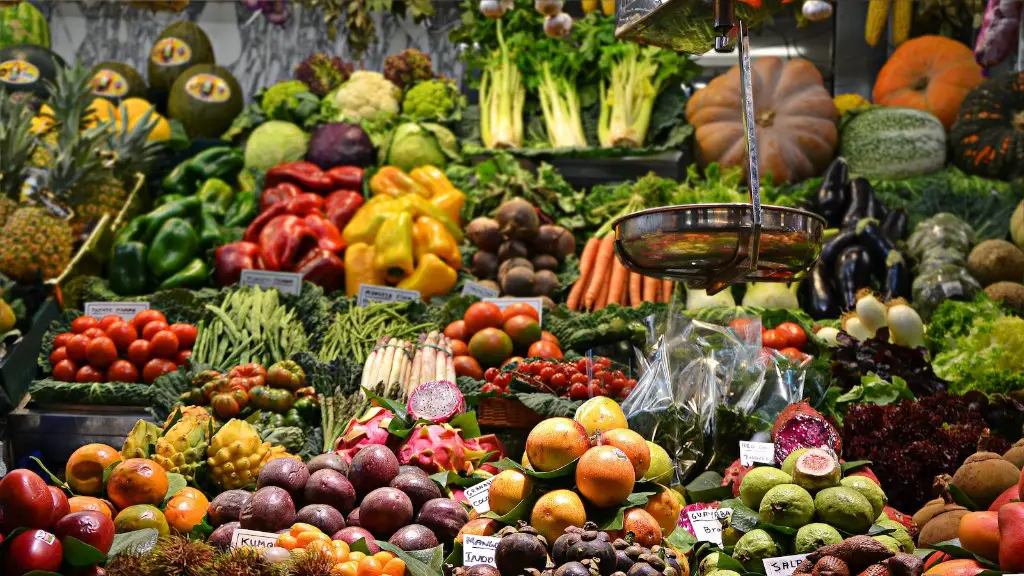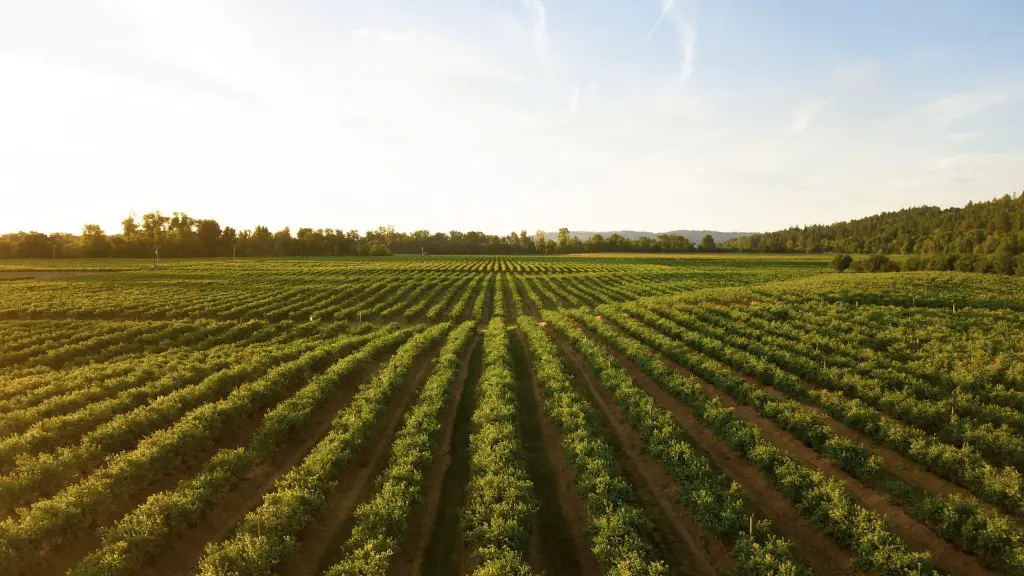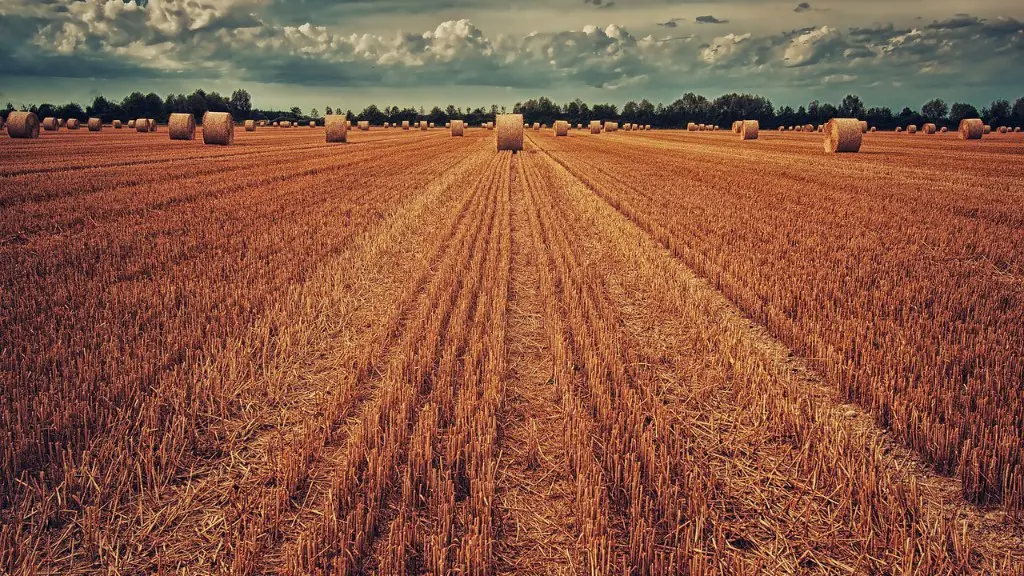Agricultural-based enterprises are businesses that use agriculture as the main source of their income. This can range from large grain farms to growing and selling produce, from rearing livestock to creating and marketing agricultural products. While there are many different types of agricultural-based businesses, they all share a common goal: to produce resources that benefit society.
Agricultural businesses are essential for providing food, clothing, medicines and everyday services that society needs. Farmers, for example, produce food for the population, while artisan food processors create products from the crops. Entrepreneurs find ways to market and sell agricultural products, increasing local production and creating jobs. Agricultural businesses are also essential for maintaining the natural ecological balance, as they are responsible for managing the land and preserving the environment.
Agriculture-based enterprises can be large or small scale operations. Small enterprises usually involve single or family-owned farms, agricultural production or small-scale processing activities. Large-scale agricultural-based enterprises typically involve multiple enterprises, with activities ranging from farming, breeders and harvesters, production and processing, marketing and distribution, and environmental management services.
The success of an agricultural-based business will depend largely on the quality of the products it produces. Quality control is essential for businesses, as products must meet the highest standards of quality to be successful. These standards must be set by the business itself, and stakeholders must be aware of them, to ensure the success of the business. In addition, business owners must be able to negotiate with potential buyers and suppliers.
Most agricultural businesses benefit from government support, grants and subsidies, which can help businesses to survive in tough times.Similarly, private funding and loans are also available to small businesses. Government support can also be beneficial for larger enterprises, helping to fund research, development, and innovation.
Agriculture-based businesses often have a significant social impact, as they are responsible for producing food and providing employment. They also contribute to the local economy and to the global food chain. Agriculture-based enterprises are key to the success of any country, and they play a vital role in sustaining the world’s population.
Agricultural Supply Chain
Agriculture-based enterprises, such as grain processing and distribution companies, are essential for ensuring the efficient, timely and safe delivery of food items to the public. These businesses are responsible for managing the entire agriculture supply chain, from the producers to the supermarket shelves. The agriculture supply chain consists of four main components: production, processing, logistics, and distribution. The successful management of the entire supply chain is vital, as delays and inefficiencies can have a significant impact on the quality, availability and cost of food.
Production involves the cultivation and harvesting of crops, while processing involves cleaning, grinding, storing, and packaging them. Logistics are the processes used to manage the flow of goods, such as transportation, tracking, and communication. Distribution refers to the necessary steps taken to get the products from the processing plant to the marketplace, such as retailing and wholesaling. Each of these components is essential for the efficient and timely delivery of food items.
Agricultural-based enterprises must ensure that their products meet the highest standards of quality and safety. Product quality control is essential for businesses, as this ensures that the products meet the needs and expectations of consumers. Businesses must also be aware of changing market dynamics, as this may affect their pricing strategies.
Agricultural-based companies must also ensure that their products are competitively priced. This can be achieved through sustainable pricing policies, cost management strategies, and efficient production and distribution processes. Additionally, businesses must be aware of industry trends, as new technology is constantly being developed to improve the efficiency of the agriculture supply chain.
Innovations in Agriculture
Agriculture-based enterprises can benefit from utilizing technology and research to create innovative products and services. Technology and research can be used to develop improved farming methods, such as crop rotation, pest management, and soil conservation. It can also be used to design new products and services, such as precision agriculture and intelligent agriculture systems.
Innovative agriculture businesses can also benefit from utilizing new technologies, such as artificial intelligence, automation, drones, and big data. These technologies can help businesses to increase productivity and efficiency, improve quality control, and make better decisions. Additionally, innovative technologies can help businesses to reduce risks, such as natural disasters and pests.
Innovation in agriculture is becoming increasingly important, as businesses must continually develop new products, services, and technologies to stay competitive. It is important that businesses invest in research and development, as this will help them to remain competitive in the ever-changing agricultural marketplace.
The use of technology and research can also help to reduce dependence on expensive chemicals, fertilizers, and fuel. Agricultural-based businesses can use renewable energy sources, such as solar, wind, and geothermal, as well as more efficient water management methods. This can help businesses to reduce costs and be more environmentally friendly.
Agricultural businesses must also be aware of global trends and changes in the marketplace. Businesses must continually adjust their practices to remain competitive, as markets often change quickly. For example, businesses must be aware of changing consumer tastes, emerging technologies, and political and environmental shifts.
Agricultural Economic Impacts
Agriculture-based enterprises play an important role in any economy, as they contribute much of the economic output and employment. They have the potential to create jobs, increase wealth, and reduce poverty. They also have a role in promoting sustainability and reducing the environmental impacts of agriculture.
Agricultural businesses contribute to economic development by providing employment, generating income, and creating wealth. For example, small-scale entrepreneurs may create jobs for local people and provide income for their family through the sale of agricultural products. Large-scale enterprises may create jobs and attract investments from foreign investors. They can also generate profits for the local economy, through the taxation of their activities.
Agriculture-based businesses also have a role in promoting sustainability and reducing the environmental impacts of agriculture. Sustainable farming practices help to conserve natural resources, reduce pollution and waste, and protect biodiversity. This helps to ensure that agricultural activities can be carried out in an environmentally responsible manner.
The agricultural sector has also been affected by recent economic changes, such as the introduction of tariffs, quotas and subsidies. Tariffs, for example, may be imposed on imported produce, while subsidies may be granted to local producers. This can help to protect local agricultural businesses from foreign competitors, while ensuring that the local economy benefits from the agricultural sector.
Agricultural-based enterprises are an important and integral part of any economy. They provide much needed food, jobs, income, and economic development. They also play a vital role in promoting sustainability and reducing the environmental impacts of agriculture. Businesses in the agricultural sector must be aware of changing market dynamics, as well as global trends, in order to remain competitive.




